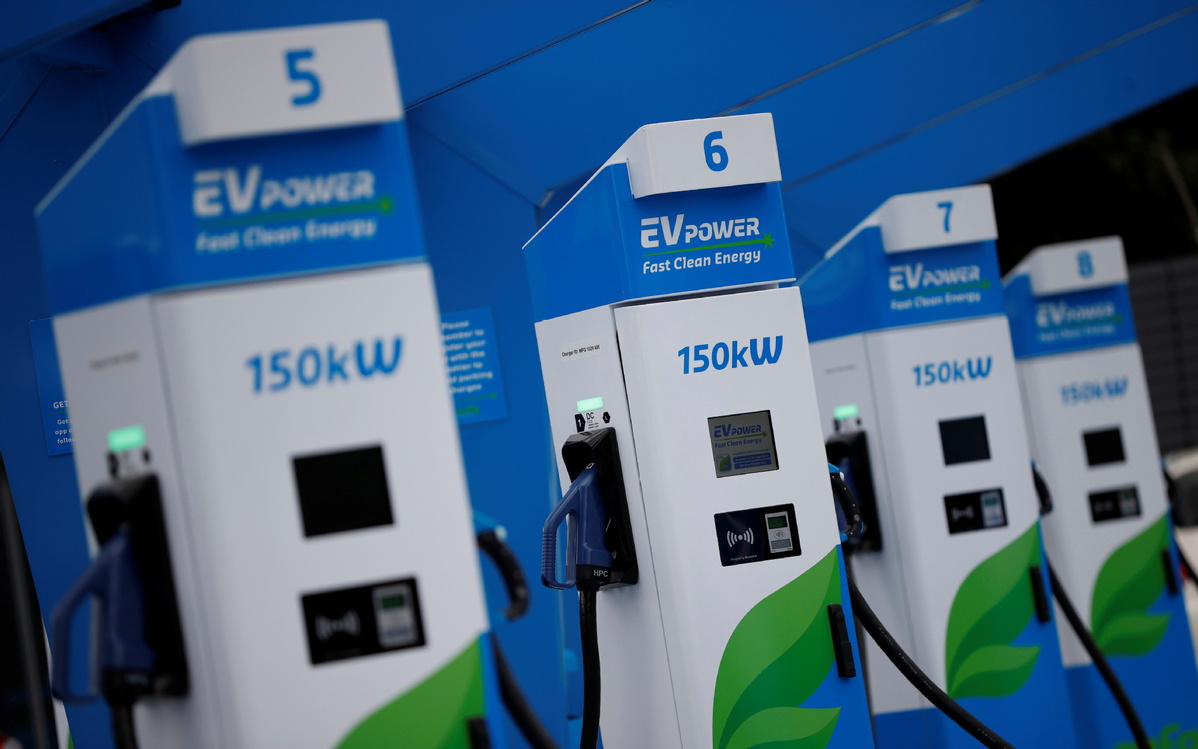UK, China see increasing cooperation in EV sector: business leader
Xinhua | Updated: 2021-11-19 10:21

Britain and China have seen increasing cooperation in the electric vehicle (EV) sector over the past decade, as the two countries strive to pursue ambitious emission reduction targets, Mike Hawes, chief executive officer of a leading British automotive trade body, told Xinhua in a recent interview.
His remarks came just a few days after the 26th session of the Conference of the Parties (COP26) to the United Nations Framework Convention on Climate Change, which concluded in Glasgow on Nov 13, with negotiators agreeing on a new global pact to tackle climate change.
Noting that the development of EVs is "absolutely important" for the two major economies, Hawes, head of the British Society of Motor Manufacturers and Traders (SMMT), said "road transport is a major contributor of that transition" in the global ambition to achieve the net zero goal.
"The UK government has set out its ambition that it wants the road transport to be 100 percent zero emission by 2035," said Hawes. "I think if you look at in both investment and trade between China and the UK, that have been increasing over the last 10 years or so."
China has announced that it would strive to peak carbon dioxide emissions before 2030 and achieve carbon neutrality before 2060.
"In terms of investment into the UK, we've seen Chinese companies set up research and development centers," said Hawes, listing a couple of Chinese firms which have invested in the country, including Geely, Changan, SAIC, BYD and so on.
"We've seen most recently a real vote of confidence in the UK when Envision (a Chinese smart energy technology company) had announced a massive expansion of its battery production facility in Sunderland in the northeast of England to support Nissan."
In terms of the institutional communication with the Chinese counterpart, Hawes said the SMMT has a memorandum of understanding with China Association of Automobile Manufacturers (CAAM) on cooperation.
"Because whether you're based in China, whether you're based in the UK, the automotive industry faces similar challenges around decarbonization, connectivity, automation, and so forth."
As to the British auto industry, Hawes said now the country is not part of the European Union, so "we can pursue a trade policy that's unique to the UK that will probably have a focus on the growing markets, and China, Asia Pacific markets are growing rapidly."
China certainly has been a big market for British exporters, especially for premium brands, such as Jaguar, Land Rover, Bentley, Rolls-Royce, etc, Hawes said.
"There's also the challenge that needs to be met in terms of making sure your products match local tastes, local culture, local demands," said Hawes. "To be really successful, you have to tailor those vehicles to an individual market."
Seeing the auto industry, particularly around the EV section, as "a global player", Hawes said there would be "great, tremendous opportunities for new entrance as well as existing players, because you need to put the products on the market that attract people."
"Whether the individual companies can take advantage of those opportunities, it depends on their own strategies, it depends on their own technology, and depends on their attitude towards trade, their attitude towards overseas investment," he added.
"That is about performance, it's about range and it's about affordability," said Hawes. "So whoever can meet those objectives will succeed in that transition."
























